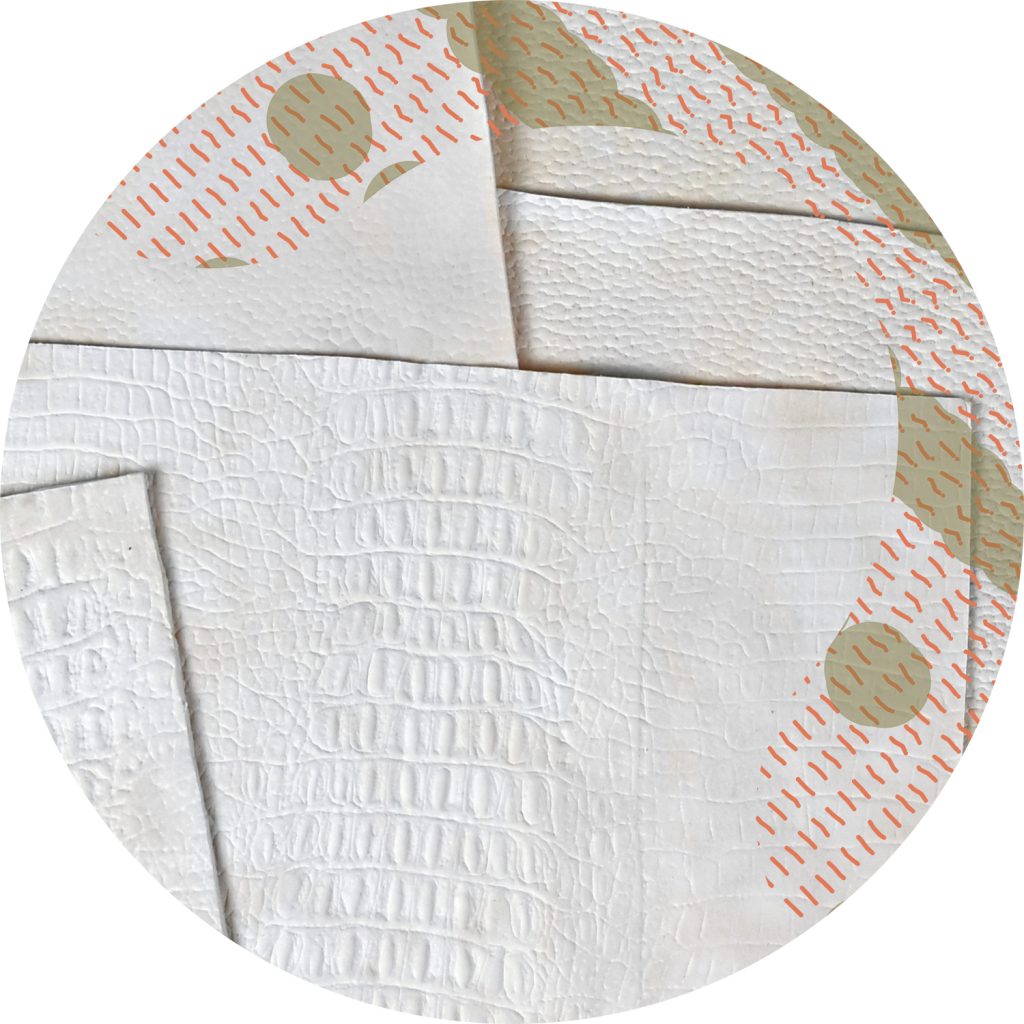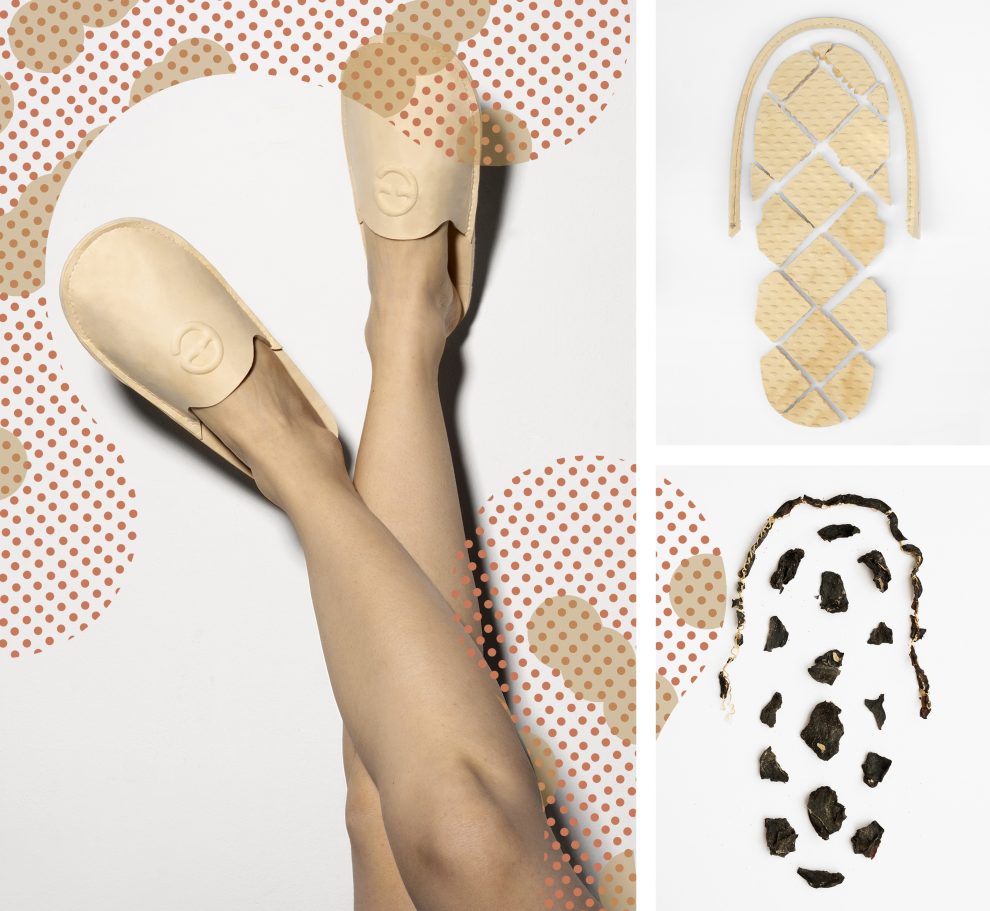Ecovative, the mycelium technology company, announced the final new member of its Fashion for Good Cooperative — sustainable fashion company Reformation — and a direct partnership with footwear company Wolverine Worldwide, to collaborate in the testing, development and commercialization of custom mycelium materials for use in their products. Founded in 2007, Ecovative’s mission is to create next-generation materials through mycelium biofabrication and to make mycelium materials accessible to everyone.
Wolverine World Wide, Inc., which was founded in 1883, is a global marketer and licensor of branded casual, active lifestyle, work, outdoor sport, athletic, children’s and uniform footwear and apparel. Through a diverse portfolio of brands, Wolverine Worldwide’s products are designed to empower, engage and inspire consumers every step of the way, the company said. The company’s portfolio includes Merrell, Saucony, Sweaty Betty, Sperry, Hush Puppies, Wolverine, Keds, Chaco, Bates, Hytest and Stride Rite. Wolverine Worldwide is also the global footwear licensee of Cat and Harley-Davidson. Based in Rockford, Michigan for more than 130 years, the company’s products are carried by retailers in the United States and globally in approximately 170 countries and territories.
Founded in 2009, Reformation is a lifestyle brand that combines vintage-inspired designs with sustainable practices and releases limited-edition collections for individuals who want to live sustainably. Setting an example for the industry, Reformation remains at the forefront of innovation in sustainable fashion — running the first sustainable factory in Los Angeles, using deadstock and eco-fabrics, tracking and sharing the environmental impact of its products. Reformation is Climate Neutral-certified and its products have been carbon neutral since 2015, with a commitment to become Climate Positive by 2025. The brand has also established itself as a pioneer in retail innovation, developing an in-store tech concept that brings the best of its online experience to its physical doors, Reformation said.

Reformation and Wolverine join a roster of world-class brands entering into collaboration with Ecovative in the Fashion for Good initiated project, including Fashion for Good partners Bestseller, Pangaia, PVH Corp. and Vivobarefoot, the company said. Reformation and Wolverine will draw from Ecovative’s expertise in cutting-edge mycelium materials — in particular, its specialized Forager division, which is focused on soft goods for fashion and apparel, providing feedback that will guide the testing and development to replace incumbent materials in products that traditionally use animal leather or plastic.
Based in New York, Forager develops advanced mycelium materials for apparel, foams and insulation. The Ecovative subsidiary leverages the expertise of Ecovative’s Mycelium Foundry to grow sustainable materials tuned for performance, the company said. Products include vegan hides that are plastic-free and foams made from mushrooms rather than petroleum. Through partnerships with brands and product developers, Forager is accelerating circularity in fashion, footwear and automotive industries with the next generation of mycelium materials to meet the fast-growing consumer demand for products that benefit people and planet Earth, said the company.
Ecovative has already developed two products for the fashion and footwear industries: Forager Hides, a premium leather-like material, and Forager Foams, for breathable insulation and structural support components, each made with pure mycelium. All of Ecovative’s products are bio-based, free of plastics and toxic chemicals, grown on agricultural byproducts and compostable at the end of a product’s life. Full-size mycelium sheets are grown in sheets up to 24 meters in length and 1.8 meters wide over the course of just nine days. These mycelium materials represent viable, sustainable, scalable alternatives to the fashion and apparel industries’ unsustainable status quo, Ecovative said.
“We’re beyond excited to join Ecovative’s cooperative to support the development of an entirely plastics-free leather alternative for scalable industry use,” said Kathleen Talbot, Reformation’s chief sustainability officer and VP of operations. “Since relaunching our Ref Shoes category in 2021, we’ve invested deeply in the nex-gen space to find a vegan solution that meets our high product and sustainability standards, without the plastic.”
“Helping test and bring Ecovative’s Forager Hide to market is a critical evolution of this work, and one that we hope will drive forward a holistic sustainability agenda for fashion. We’re energized to unlock a solution that can not only be used in future Reformation collections but be made available to the entire industry,” Talbot continued.
As the urgency of the climate crisis sinks in, consumers and brands alike are eager to replace the leather in wearables, the supportive foams used in shoes and jackets and the plastic found throughout the industry’s products with sustainable alternatives that don’t come at a cost to quality or durability, Ecovative said. Industrial animal agriculture — of which leather is a co-product — requires more arable land than any industry on Earth, consuming immense amounts of water,
and using caustic chemicals, the company said. Plastic also represents a global crisis, and the apparel space has an especially high footprint of plastic, which is involved in almost every product for structural support and durable finishes, making many of them impossible to recycle or reclaim. Ecovative’s mycelium technologies make it possible to replace these unsustainable materials with fully compostable alternatives that come from and return to nature.
“The need for more sustainable materials is clear, and we could not be more excited to bring them to market in partnership with Wolverine and Reformation,” commented Gavin McIntyre, Ecovative’s co-founder and chief commercial officer. “Both companies represent an immense amount of market knowledge, a diverse family of products and expertise in complex supply chains that will be crucial to applying our mycelium materials for maximum impact.”
“Together, we are taking a big step [toward] transforming these industries for the better,” McIntyre also said.








